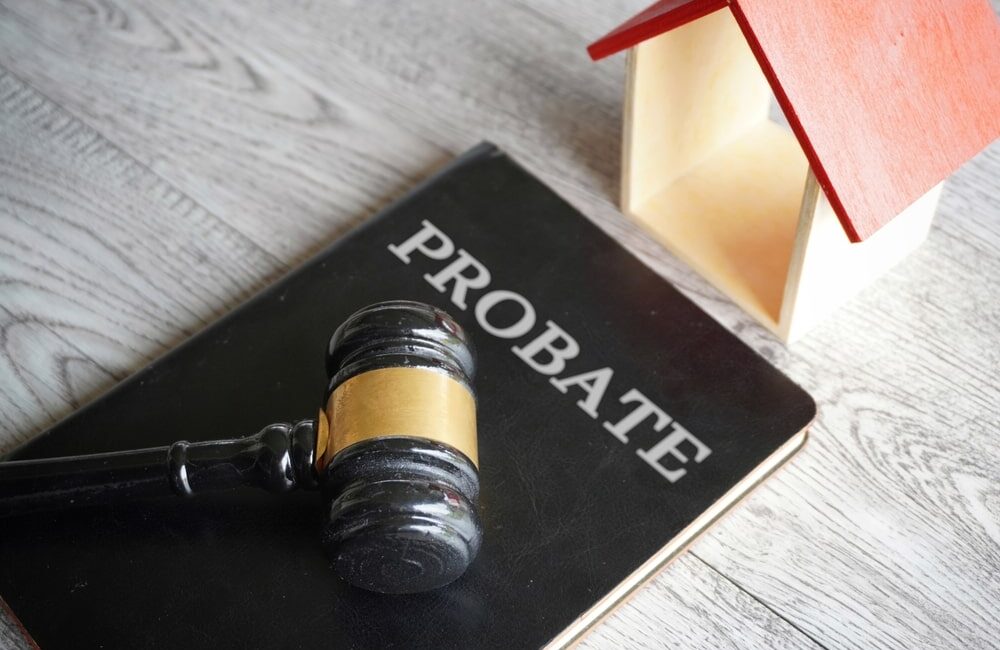The death of a close family member is always challenging. The legal process of probate can lead to additional stress and uncertainty. Understanding your rights to your loved one’s estate is essential when dealing with probate. Understanding the probate process and your rights as a trust beneficiary is essential to respect your rights.
In this article, you’ll learn about the rights that beneficiaries have during probate, as well as related subjects. Talk to an Orange County estate planning and probate attorney about probate and associated topics.
What Is Probate?
When a person passes away, the decedent’s estate includes all the assets they included in the will and other assets they owned. Estate assets usually go through the probate process. Without probate, the estate’s personal representative cannot usually transfer assets to each beneficiary.
The estate executor is usually named in the will to preside over the state during the probate process. Before they can do so, the probate court needs to appoint them. Usually, the probate court goes along with what is in the will unless they think the person is unfit. The nominee can refuse to be the executor, or the appointment can be disputed. The executor or administrator must gather the deceased’s assets, pay creditors, and provide a full accounting of the assets, among other duties.
Probate can cause delays in distributing assets to beneficiaries, and it’s expensive, so many people want to avoid it. Many states have laws that may allow probate to be expedited or avoided. In California, if the estate is worth under $184,500, a small estate affidavit can be used to avoid the probate process. Also, if part of the estate is to pass to the spouse, a spousal property petition can be signed to transfer property without probate.
You should talk to a probate attorney if you have questions about probate, how to avoid it, and related legal questions. Probate and beneficiary questions are almost always complex, and a seasoned attorney should advise you on state and federal law.
What Is A Probate Beneficiary?

A beneficiary is a person or entity named in a will or similar estate planning document to receive part of the person’s estate. In most states, such as California, the beneficiary has the right to be told about their inheritance and promptly receive what they are owed from the estate.
In California, a beneficiary can ask for information from the estate executor and the status of the probate process. If the estate is in a trust, the trustee has to ensure that every beneficiary receives assets according to the trust document. More information is below about the rights that beneficiaries have during probate.
Overview of Probate Beneficiary Rights
You have several rights as a beneficiary in all states, such as California. They are:
Right To An Accounting
One of the most critical parts of beneficiary rights in probate is the right to be aware of every estate activity. This vital legal tool ensures that everything is transparent for beneficiaries.
Beneficiaries can receive updates about the estate by obtaining a full accounting. The accounting should include any payments made or money gathered on behalf of the estate. This information should be received quickly from the estate representative.
Right To Contest The Will
Do you think that the will is invalid? Probate beneficiary rights in most states also allow you to retain a probate attorney to change if the will is valid. However, proving that a will is invalid is complex and should only be attempted by a seasoned attorney.
Only a professional estate attorney can determine if there are valid grounds to contest a will. Challenging the will is usually the sole way to protect your inheritance and safeguard the legacy of the person who wrote the will.
Right To Ask For Relief
Do you think the beneficiary overseeing the estate is unfit for some reason? You should hire a probate attorney to seek relief from the person and have them removed. You can speak to a probate attorney in your area today and explain the situation.
Right To File A Lawsuit
Sometimes, the estate executor overseeing and administering the estate isn’t merely unfit. They can be operating with questionable motives. If the person breaches their duties as a fiduciary, a critical right you have is to file a civil lawsuit. For instance, the estate executor may have embezzled funds or misused them.
If you’re in a situation where the estate executor is not acting in your best interests as a beneficiary, you should retain a probate litigation attorney to file a lawsuit.
Right To A Lawyer
Do you think your rights as a probate beneficiary have been violated? Remember that you are always entitled to retain an attorney to safeguard your rights and receive justice.
You can have similar and other rights as a beneficiary in your state, so talk to an attorney for more information.
Why Would You Sue An Executor?
An estate beneficiary can sue the administrator or executor if they are not doing their job or are engaging in financial misconduct. There are several steps to protect your rights as a beneficiary if there is a breach of fiduciary duty. You should retain a probate lawyer to help if you need to sue the executor. Some reasons you may need to sue an executor are:

- The executor did not provide an accounting to the beneficiaries.
- The executor has shown favoritism to a beneficiary.
- The executor misappropriated assets for their own gain.
- The executor has mismanaged the estate assets.
- The executor did not pay taxes on the estate.
- The executor has endangered estate assets with risky investments.
- Conflicts of interest led to the executor putting their personal interest over the interest of the beneficiaries.
Beneficiary Rights In The Will
In some cases, the will violates the beneficiary’s rights. If this happens, an estate beneficiary can bring a will contest to invalidate the will.
For example, if the deceased attempts to dispose of the spouse’s separate property, which they obtained before the marriage, the spouse might file a will contest to invalidate part of the will. The decedent does not have the right in their will to dispose of property the surviving spouse obtained before the marriage.
A common situation that leads to a will contest regards a beneficiary challenging the validity of the will document. There may be allegations of elder financial abuse, fraud, lack of capacity, or undue influence. In this situation, the interested party who thinks there was abuse can file a will contest to invalidate the will.
You should not stand by if you are a probate or estate beneficiary who risks losing their inheritance because of a will contest filed by someone. Instead, talk to a will contest or probate litigation attorney about your case.
If the property dispute is not against an administrator or executor, it’s usually one who must bring the action they think caused harm to the decedent’s estate. An estate beneficiary who files an action against another stakeholder in the estate can have the alleged offender return the property or pay for it. They also can seek punitive damages if there was substantial harm.
In a case where a trust contains property that belongs to the estate, a petition can be filed to put the property back into the estate. However, this petition is typically filed by the administrator or executor.
What Are Heirs At Law And Their Role?
Unfortunately, not every person writes a will before they pass away. When there is no will, heirs at law may be entitled to inherit from the deceased. These may include the surviving spouse, children, and other relatives.
When there is no will, intestate succession laws decide how the estate is divided. The surviving spouse usually gets a large portion of the estate in California. The remainder is generally split between the children. If there are no children, the estate can be divided among parents or siblings.
According to most intestate succession laws, heirs at law also have the right to inherit. They usually have the right to be told about probate and to participate in the legal process. If the heir thinks they are excluded, they can petition the court to assert their legal rights.
Spouse Rights During Probate
In California and many states, the surviving spouse has significant rights in probate. Understanding probate rights is critical to ensure that estate assets are fairly distributed:
- Community and separate property: Many states, including California, are community property states. This means the surviving spouse usually receives 50 percent of the community property from the marriage. The other half should be distributed through probate.
- Elective share: The surviving spouse can have the right to an elective share of the estate if they think they were not given enough in the will. This lets the spouse claim part of the estate, even when the will says they should have less.
- Right to family home: The surviving spouse may have rights to the family home, such as the right to live there. This can be vital in states with expensive real estate markets because real estate may be the lion’s share of the estate.
Beneficiary Rights In Trusts
If a parent creates a trust, the trustee must manage the trust assets carefully and ensure they are distributed according to the trust terms. The trustee’s role is vital to ensuring that the decedent’s wishes are respected.
In California, the trustee is required as a fiduciary to act in the beneficiaries’ best interest. It means managing the trust assets prudently and offering regular updates to every beneficiary. The assets should be distributed as the trust document states. If the trustee does not perform these duties, the beneficiaries can take legal action to have the person removed and replaced.
California law also states that the trustee must inform every beneficiary about how the trust is administered. Beneficiaries are entitled to ask for information about what is in the trust and how the trustee performs their job.
Who Else May Have Rights During Probate?
Beneficiaries, heirs at law, trustees, and surviving spouses have probate rights. The following people and entities may also have rights to the probate state:
- Creditors: Creditors are entitled to be paid from the estate before assets are given to heirs or beneficiaries. The administrator or executor should inform creditors of the proceedings during probate and pay debts from estate funds.
- Minors and incapacitated persons: If the decedent left behind minor children or anyone incapacitated, a guardian should be appointed to handle their inheritance. The probate court shall oversee the process to ensure all assets are used for the person’s benefit.
- Charitable groups: If the decedent left part of the estate to a charitable organization, it has the right to receive the appropriate estate share. Charitable groups may have the right to be told about probate proceedings and to participate in legal actions that involve the estate.
Are Distributions From the Estate Taxable?
A common question for estate beneficiaries is whether distributions from the decedent’s estate are taxable. Good news: Estate distributions to a beneficiary are not usually taxed. The executor generally pays any taxes related to the estate that must be paid before distributions.
Most estate beneficiaries should know that they will receive the full distribution. Distributions from an estate are not usually considered income and are not subject to state or federal taxes. However, there are rare exceptions, and you should discuss your situation in detail with an estate or probate lawyer.
Speak To An Estate Planning And Probate Attorney Today

Planning for the future is critical, so you should hire an attorney to help regarding your beneficiary rights. You can also speak to an estate planning and probate lawyer about trusts, probate disputes, reducing estate taxes, etc.
By working with an estate planning and probate attorney, you can gain peace of mind knowing that your interests are being protected. They will ensure your beneficiary rights are upheld during the probate process. A probate attorney can help you understand your rights as a beneficiary and ensure that the estate is distributed according to the deceased person’s wishes. Contact a lawyer in your area today.


